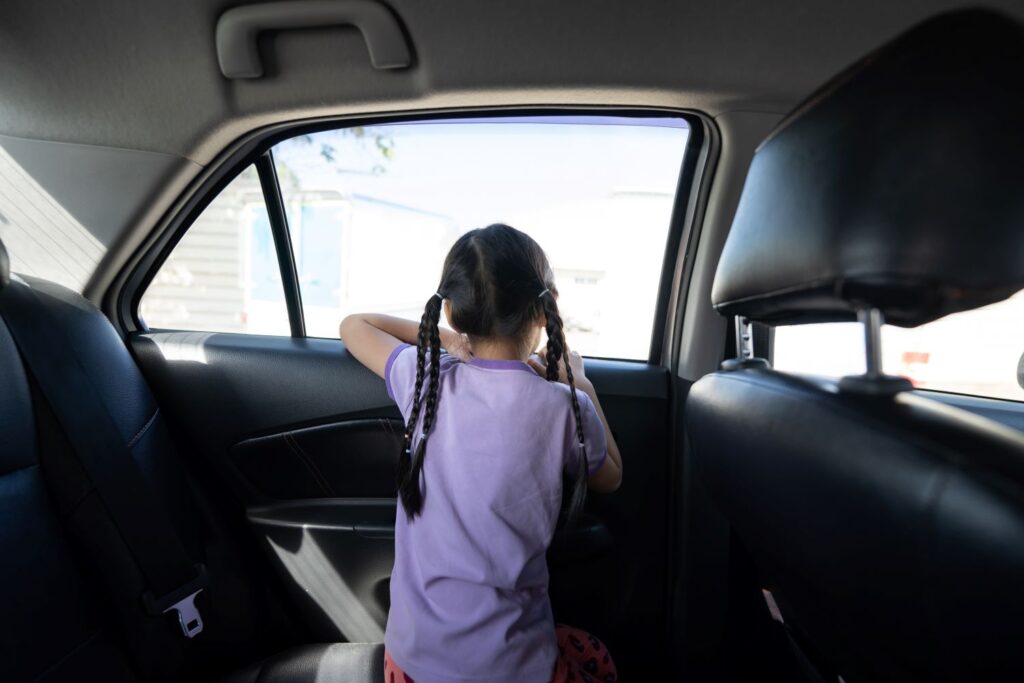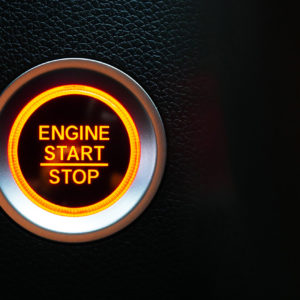You must not leave your child without adult supervision in any situation. That bit of common sense applies doubly to leaving them inside a car where so many things can go wrong. But now and then, an emergency requires you to leave. Perhaps your child is asleep, and the chore won’t take more than a few minutes.
At what age can you leave a child in the car unattended? And for how long? Can a 12-year old stay in the car alone?
Is It Illegal To Leave Your Kids in the Car?
There isn’t any federal law that makes it illegal to leave a child unattended in a car. However, many states passed legislation called hot car laws that made it illegal after a tragic case where a kid died in such a situation.
Furthermore, states that don’t enforce a hot car law might still prosecute offenders through other appropriate legal means, especially if a child was harmed because of negligence.
What Might Happen if You Leave Your Kids in the Car?
Any parent knows that children can easily find trouble even under watchful supervision. One of the worst places you want to leave them alone in is a car, especially if the engine is running.
Here are some of the most common and serious risks if you leave your kids in the car without adult supervision:
- Dehydration and heatstroke in hot weather
- Hypothermia in cold weather
- Strangers can break into the vehicle and take away the children
- Accidents inside the car that injure the kids
- Children finding their way into the vehicle’s trunk or escaping the car
- Vehicular accidents and injuries caused by unsupervised children operating the car

States and Their Hot Car Laws
California Vehicle Code Section 15620(a) is the first hot car law. It’s nicknamed Kaitlin’s Law after Kaitlin Russell, a 6-month-old child who tragically died after her babysitter left her unattended in a parked car.
Many other states followed suit and passed their own hot car laws. Each law determines how old children must be before you can legally leave them alone in a car. It also sets how long you can leave children unattended and what scenarios to avoid. Some laws add specific requirements, such as older people supervising the children.
Here are the states with a hot car law or other laws that cover leaving a child unattended in a car:
Alabama
Act No. 2019-475 forbids leaving incapacitated people and children between 0 and 8 years unattended in a vehicle for any period. The exception is if the vehicle’s ambient interior temperature is below 99 Fahrenheit, which will help prevent heat-related health issues.
California
California Vehicle Code Section 15620(a) bans leaving children younger than 7 years in a car for any duration unless someone at least 12 years old can supervise the younger kids.
Connecticut
Section 53-21a makes it illegal to leave children between 0 and 11 years in the car unsupervised for even brief durations if doing so puts the child in danger.
Florida
FSS 316.6135 doesn’t allow leaving children younger than six years alone if the car isn’t running or if it puts the child in danger. Furthermore, the same law makes it illegal to leave kids younger than 16 years in a running or unsafe vehicle without supervision.
Hawaii
Statewide Traffic Code 291C-121.5 forbids leaving children between 0 and 8 years unattended in a car for more than 5 minutes.
Illinois
Section 12 21.6 makes it illegal to leave children younger than 6 years inside a vehicle alone for more than 10 minutes. It requires the presence of a person with a minimum age of 14 years to supervise the kids.
Kentucky
The Revised Statutes Section 507.040 isn’t a hot car law. Kentucky doesn’t prohibit leaving children in a vehicle unattended for unlimited time. But if a child between 0 and 7 years old dies from being left alone in a car, the one who left them can face manslaughter charges.
Louisiana
Revised Statutes 32:295.3 forbids leaving children younger than six years in a car alone for 10 minutes or longer.
Maryland
Maryland Family Law Code Section 5-801 prohibits leaving children between 0 and 7 years in a locked car without supervision. Any person in charge of the kids during this time must be at least 13 years old to ensure their safety.
Michigan
Michigan Laws Section 750.135a is an addition that made it illegal to leave a child of any age unattended in a potentially dangerous situation.
Missouri
Like Kentucky, Missouri allows children to be left alone in a car. However, if a child between 0 and 9 years of age gets injured or dies in that situation, the Revised Statutes of Missouri Sec 568.052 will consider the person who left them liable for felony charges.

Nebraska
According to NRS 202.575, leaving children 0-6 years of age in a running car or a similarly dangerous situation is illegal.
Nevada
According to NRS 202.575, it isn’t allowed to leave children younger than 8 years old in a running car or a similarly dangerous situation.
Oklahoma
The Unattended Children in Motor Vehicle Safety Act prohibits leaving children between 0 and 6 years alone in a running car or an unsafe vehicle.
Pennsylvania
Pennsylvania Statutes Title 75 Pa.C.S.A. Vehicles §3701.1 doesn’t permit leaving children younger than six years unattended in a car if it exposes them to risks like heatstroke.
Rhode Island
Rhode Island General Laws § 31-22-22.1 makes it illegal to leave children between 0 and 11 years in a potentially dangerous scenario.
Tennessee
Tennessee Code § 55-10-803 prohibits leaving children of any age without supervision in a motor vehicle.
Texas
Texas Penal Code Sec. 22.10 makes it illegal to leave children younger than 7 years unattended in a car for more than 5 minutes.
Utah
Utah Criminal Code 76-10-2202 prohibits leaving a child between 0 and 8 years unaccompanied in a motor vehicle if they might suffer dehydration, heat stroke, or hypothermia. Any supervisor must be at least 9 years old.
Washington
RCW 46.61.685 prohibits leaving children younger than 16 years old in a running vehicle. The law also makes it illegal for the driver to leave kids because they wanted to drink liquor at an establishment that serves alcohol.
Any information provided on this Website is for informational purposes only and is not intended to replace consultation with a professional mechanic. The accuracy and timeliness of the information may change from the time of publication.


















